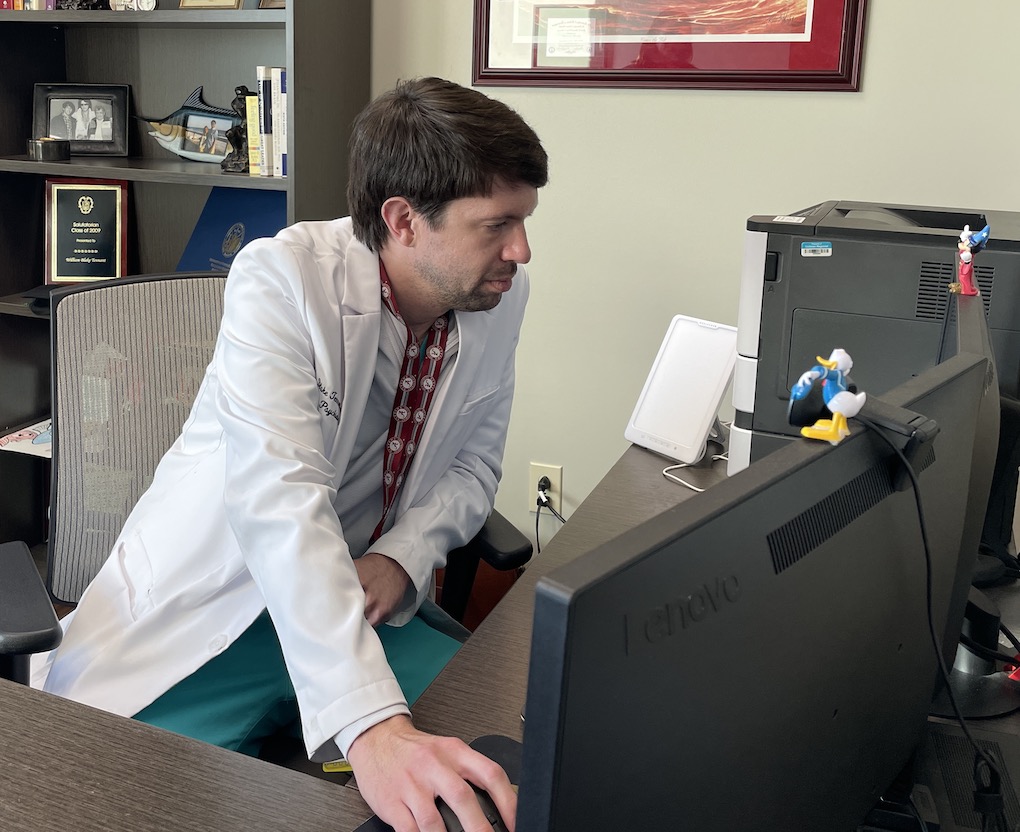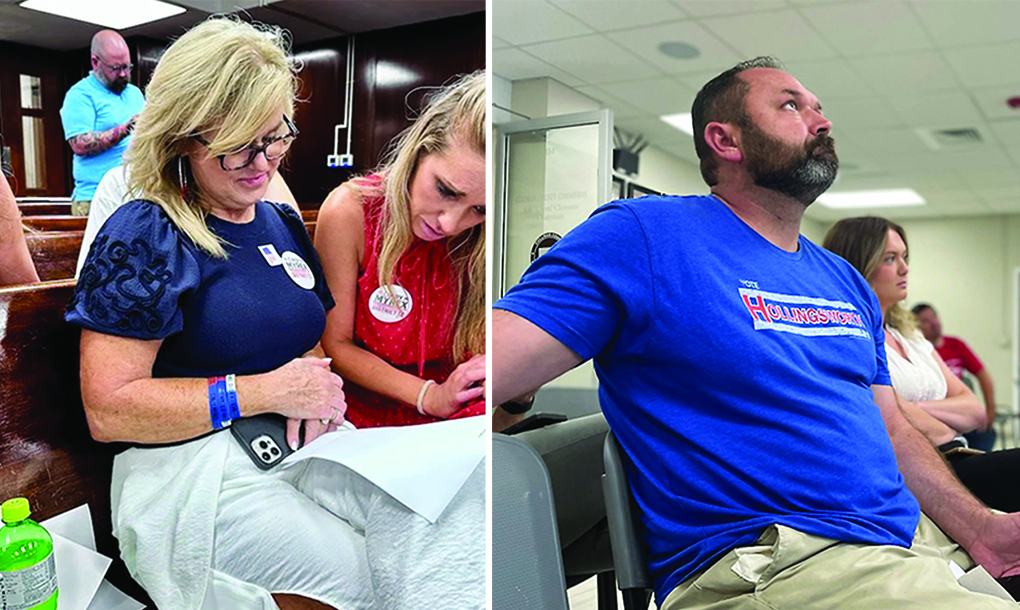Suicide prevention program implemented at CRMC
Published 3:44 am Tuesday, December 24, 2024

- Dr. Blake Tennant from Turning Point Psychiatry at Cullman Regional Medical Center at his office Thursday, Dec. 12, 2024. Patrick Camp | The Cullman Times
WARNING: This story contains discussions involving suicide and related mental health disorders such as depression that some readers may find upsetting. If you or someone you know is struggling and having thoughts of suicide please seek help by calling or texting 988 to reach the national mental health hotline.
Editor’s note: This story has been corrected to say Cullman County was chosen as the target area to begin implementing the program due to its high suicide rate compared to other counties in Alabama — nearly 20 in 2022 according to the Alabama Department of Public Health.
Cullman County has been described as “the gold standard” of a new initiative from VitaAL — a partnership between the University of Alabama and state governmental agencies — to improve outcomes for those with a high risk of suicide.
Trending
VitaAL received a five-year grant from the Substance Abuse and Mental Health Services Administration to begin rolling out Project Zero Suicide in nine Alabama counties last year. The goal of the project is to work with local agencies and health care providers to implement evidence based prevention strategies to better assess, engage, treat and transition patients at risk of suicide.
Project Zero Suicide Director Tamela Hughes said one of the key components to the model is to identify more adults at risk of suicide by implementing universal screenings when they visit their care provider.
Dr. Blake Tennant, from Turning Point Psychiatry at Cullman Regional Medical Center, was the first to begin using these screenings in October and said hospital administrators are working alongside VitAL to include them in the Emergency Department after the first of the year.
Cullman County was chosen as the target area to begin implementing the program due to its high suicide rate compared to other counties in Alabama — nearly 20 in 2022 according to the Alabama Department of Public Health.
“We were chosen because Cullman actually has one of the highest suicide rates in Alabama. It’s a really serious issue here,” Tennant said.
While Tennant said his office has not identified any patients at extremely high risk of suicide since it has added the new screening measures, he said one important aspect of the program was to have a plan in place for when the situation arises. He said at risk patients will receive follow-up consultations with him or another area mental health specialist within 48 hours and, if needed, will be transitioned from his office to the emergency room or a psychiatric hospital.
Trending
“We’re going to be focused on improving those transitions and making them more of a warm, inviting and supportive environment for people in crisis,” Tennant said.
Those follow up consultations were critical Tennant said, as the likelihood of dying by suicide dramatically increases within the 30 days after a patient is released from an inpatient facility or emergency room.
“Expanding that follow-up care after those episodes and getting therapy sooner should make a really big impact,” Tennant said.
But improving the linkage between providers can be difficult with only one provider for every 611 residents in Cullman County. This is why VitAL released the Connect Alabama app for Apple and Android Devices. Hughes said the app was intentionally designed to work without an internet connection to help people experiencing a crisis find resources to hotlines and critical services even while in remote areas.
Hughes said the program is also hoping to expand the number of people capable of identifying someone at risk of suicide to those outside the realm of mental health providers through community training sessions. VitAL has held one “Train the Trainer” session
“We brought individuals from each of our nine counties to become assist trainers so they could go back to their community and train anyone from the local accountant to the zoo keeper on suicide first aid,” Hughes said. “In those discussions about beliefs and attitudes and how mental health issues may show up in different people.”
Tennant said his hope is that as the program continues and expands that it begins to “change the culture” around suicide discussion and awareness which he believes will in turn lead to more effective prevention.
“I think the main thing people should know is that talking to people about suicide doesn’t make it more likely to happen,” Tennant said. “Asking somebody about suicide doesn’t introduce that idea. It is okay to talk about and ask about.”
Patrick Camp can be reached at pcamp@cullmantimes.com or by phone at 256-734-2131 ext. 238.






